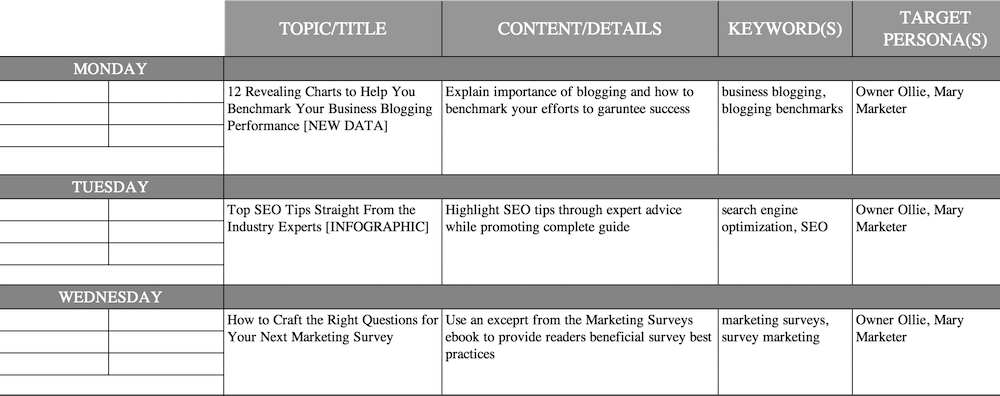
There’s a lot of pressure on small businesses to start blogging. For some it really isn’t their cup of tea.
Increasingly in the digital age, branding is essential and maintaining a company or personal blog is one of those “must-haves” on the online marketing list.
If you consult with any online or branding consultant, not to mention SEO strategists, they will recommend having a website and blogging regularly.
Is anyone reading your blog?
Does anyone even read all of your blog posts? According to WordPress.org, there are now nearly 70 million blog posts published each month, on their platform alone. That’s a lot of blog clutter on the web.
Add to that the fact Google has stated their love for fresh content and blogging continues to remain highly relevant. This may have been the prevailing factor when SEO resembled the gold rush, but as search engines become more refined, user experience (UX) metrics are obviously becoming more and more important in ranking algorithms. There are plenty of thorough reports on how much UX metrics weigh, along with the current debate on UX vs. SEO efforts.
The bottom line is that updating your website content and company blog just for the sake of freshness doesn’t cut to anymore (and it probably never did).
Content frequency does not translate into readership.
How much blogging is too much?
Every piece of advice piece you will ever read about the benefits of blogging highlight some pretty impressive potential benefits. Those stats and implied advantages are not wrong.
For a healthy chunk of all businesses (and individuals), blogging is helpful in very visible ways. It generates more leads, brand awareness, collaboration opportunities and so on.

A case study on Quicksprout highlighted how blogging helped generate 62% more leads in the a single month alone. With an investment of around $5,000 in good content published daily, the company then earned enough to justify similar future investments. Content marketing can indeed work if done right.
There’s a reason the very concept of content marketing became so popular and over-hyped: because it works. But the bad news is that not all blogging generates such results. Most blogging, in fact, does not.
To answer the question of “how much is to much?”, any blog post that doesn’t communicate something entirely useful to the user is worthless. Blogging done just for the sake of ticking the weekly marketing checkbox is worthless. Even one useless blog post is too much.
It sounds harsh, but it’s a truth many newly minted bloggers should face.
How to make blogging more valuable
Without further ado, here are key factors that make a blog post useless:
-
It doesn’t teach the reader anything of value
-
It’s published only for the purpose of providing a weekly update
-
It’s too short and resembles another 100 blog posts published on the same topic (I will admit very few exceptions to this, as sometimes the occasional short post is indeed concentrated)
-
It briefs on recent company activity news which could only interest a handful of people directly involved
-
It’s too informal (verging on unprofessional), comprising personal musings on a vaguely industry-related topic
-
It’s too dry, stating recent statistics, but lacking any call to action or actionable advice
There are, of course, plenty of other ways in which a blog post can be just another boring drop in the ocean of blogging. Still, these are the main ways in which small business blogs err towards making their blogging efforts more or less pointless.
Yes, even in the clumsiest attempts at blogging, there is still the advantage of bringing a human voice to the venture and providing insight into company culture. You could decide that even if your blogging isn’t up to par yet, you should still keep at it for these reasons alone.
But any content marketing professional would advise you not to waste more time with a strategy which doesn’t work.
If you’re not over the threshold of your first 1,000 readers, then more useless content is definitely not what you need.
There’s a better way to blog
So, the bottom line or take away is this: stop the blogging overflow and publish fewer, but better blog posts. Create a publishing plan and even if you end up investing weeks into a single, highly-valuable blog post, rest assured that it will be worth it.
After publishing something that adds value to the reader, you can then focus your efforts on promoting it. Once you get the hang of it, feel free to involve more team members in the blogging process, but lay out an editorial calendar first.
Here’s an example from HubSpot.

To echo a popular cliché floating around online, remember that blogging is a marathon and not a sprint. As long as you focus on delivering high-value, engaging posts with a relatively rich, long-form content, you won’t need to post very often.
This article has been edited and condensed.
Miriam Cihodariu is a former academic and social researcher, still anthropologist at heart, with a penchant for storytelling. Fast forward a few years, she turned SEO strategist and content marketer. Now, she is the CEO of Digital Web Properties, a small SEO and content marketing agency where all her passions and interests converged. Connect with @miriam_cih on Twitter.
© YFS Magazine. All Rights Reserved. Copying prohibited. All material is protected by U.S. and international copyright laws. Unauthorized reproduction or distribution of this material is prohibited. Sharing of this material under Attribution-NonCommercial-NoDerivatives 4.0 International terms, listed here, is permitted.













